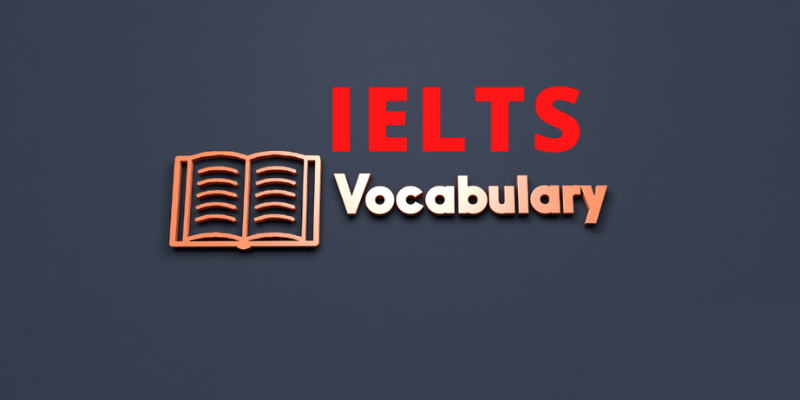The IELTS (International English Language Testing System) exam assesses English language proficiency for non-native speakers. It evaluates four skills: Listening, Reading, Writing, and Speaking. The test is widely used for educational, immigration, and professional purposes. IELTS is recognized by universities, employers, and governments globally. Vocabulary is a key component in the IELTS exam, influencing your performance across all sections. A strong vocabulary not only enhances comprehension but also improves expression in Listening, Reading, Writing, and Speaking. This blog explores what role does vocabulary play in the IELTS Exam. Enrol in IELTS Coaching in Gurgaon at FITA Academy, providing thorough training and expertise in key IELTS exam concepts.
Vocabulary’s Importance
In the IELTS exam, vocabulary plays a crucial role across all sections. Whether in Listening, Reading, Writing, or Speaking, a rich and varied vocabulary can significantly impact your performance. In the Listening section, a broad vocabulary helps in comprehending audio clips more effectively, allowing you to catch subtle details and specific information. For the Reading section, recognizing and understanding a wide range of words can improve your ability to grasp the meaning of texts, identify key ideas, and answer questions accurately.
In the Writing section, a diverse vocabulary allows for more precise and varied expression. Using a range of vocabulary can enhance your arguments and make your writing more engaging. The Speaking section also benefits from a robust vocabulary, as it helps in articulating thoughts clearly and expressing ideas in a nuanced manner. It can lead to better fluency and coherence, which are essential for scoring high in this part of the exam. Join IELTS Coaching in Kolkata, which helps to achieve a high score.
Expanding Vocabulary
Building a strong vocabulary requires consistent practice and exposure. Reading widely across different genres and subjects can introduce you to new words and phrases. Engaging with academic texts, newspapers, and literature helps in understanding the context in which words are used, enriching your vocabulary further. Additionally, using vocabulary lists and flashcards can assist in memorizing new words and their meanings.
Effective Techniques
Active learning techniques can make vocabulary acquisition more efficient. For instance, creating sentences with new words helps in understanding their usage and context. Regularly revising and practicing these words ensures they become a permanent part of your vocabulary. Another useful technique is to engage in conversations or discussions using new vocabulary, which reinforces learning and enhances retention.
Understanding Word Usage
Knowing the meaning of a word is just one aspect; understanding its usage is equally important. Words can have multiple meanings depending on the context, and using them appropriately can make a significant difference in your exam performance. Paying attention to word collocations and common phrases can help you use words in the right context. This not only improves the clarity of your communication but also demonstrates a high level of language proficiency. Explore IELTS Coaching in Ahmedabad, which helps you to enhance your english vocabulary.
Frequent Vocabulary Difficulties
Many candidates face challenges with vocabulary in the IELTS exam. Some may struggle with synonyms and paraphrasing, which are often required to answer questions accurately. Developing the skill to recognize synonyms and rephrase sentences is crucial for the Reading and Writing sections. Others may find it challenging to use advanced vocabulary naturally in the Speaking section without sounding forced. Balancing the use of sophisticated vocabulary with natural expression is key to achieving a high score.
Practical Application
Applying vocabulary effectively in practice tests can help you prepare for the actual exam. Simulating test conditions and focusing on vocabulary usage in practice exercises can build confidence and familiarity. Reviewing and analyzing mistakes can also provide insights into areas for improvement and help refine your vocabulary skills.
Feedback and Improvement
Seeking feedback from teachers or language experts can provide valuable insights into your vocabulary usage. Constructive feedback can highlight areas where you need improvement and suggest strategies for enhancing your vocabulary. Additionally, participating in study groups or language exchange programs can offer opportunities to practice and receive feedback from peers. To enhance your English Language Proficiency, join IELTS Coaching in Delhi.
Vocabulary in Context
Using vocabulary in context is crucial for effective communication. Practice using new words in sentences and real-life scenarios to ensure they are used appropriately. This approach not only helps in retaining vocabulary but also improves overall language proficiency.
Integrating Vocabulary
Integrating new vocabulary into your daily language practice can help solidify your learning. Incorporating new words into writing assignments, conversations, and even social media posts can reinforce their usage. Regularly reviewing and using vocabulary in various contexts ensures that it becomes a natural part of your language skills.
Monitoring Progress
Monitoring your progress in vocabulary acquisition can help you stay on track and identify areas needing more focus. Keeping a vocabulary journal or using apps to track new words and their usage can be helpful tools. Regular assessments and self-evaluation can provide motivation and guide your learning process.
By focusing on these aspects, you can enhance your vocabulary skills and improve your overall performance in the IELTS exam. A well-developed vocabulary not only boosts your score but also builds confidence in your language abilities. Ultimately, investing time in vocabulary practice can lead to significant success in achieving your IELTS goals. Joining IELTS Coaching in Jaipur could be a valuable step for your dream job.

